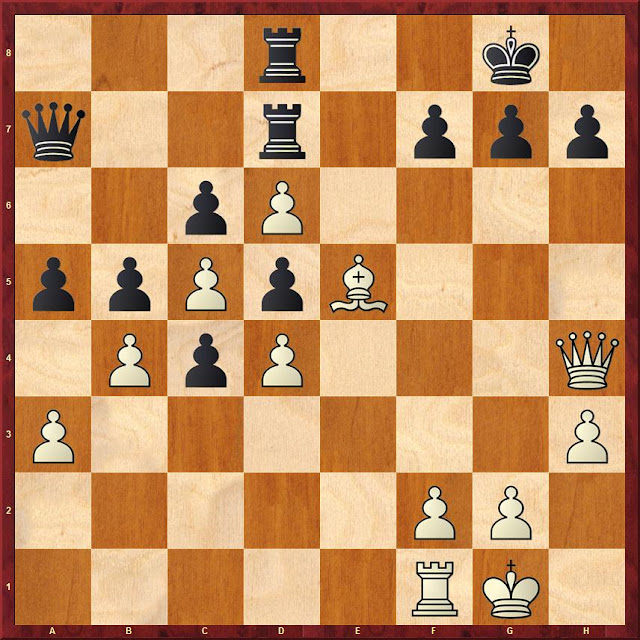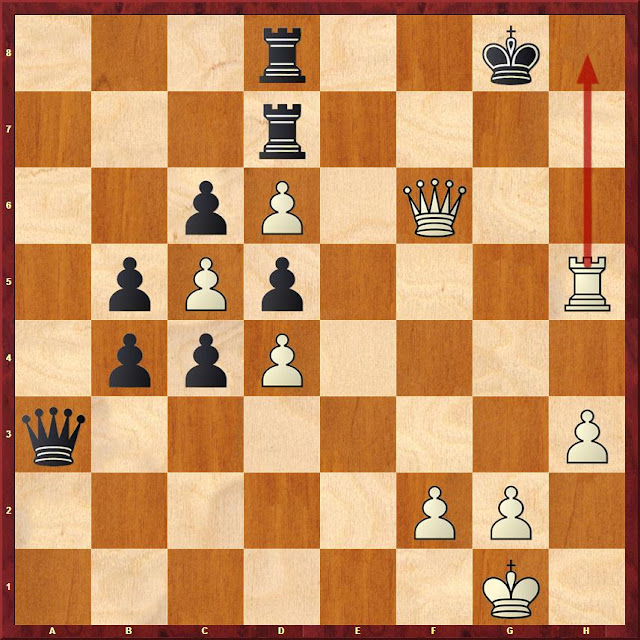I finally decided to resume writing this blog. I hope to write more regularly again from now on. Today what I want to write about are the 3 different kinds of chess sacrifices, and how each kind poses their own difficulties.
Basically there are 3 types of sacrifices in chess.
1. One kind of sacrifice leads to a pretty forced sequence of moves that gives both sides relatively few opportunities to deviate. A typical example would be the bishop sacrifice on h7. More often than not that sacrifice leads to a pretty much forced sequence of events where the outcome is clear even before the bishop is sacrificed.
2. Another kind of sacrifice is based on long-term strategic and positional objectives, for example the
positional exchange sacrifice.
I'm a very "greedy" player, and only when I get overwhelming positional compensation I'm ready to give up an exchange for it. I know that this is one of my weaknesses. I'd be a better player if I wasn't holding on to my material so much.
3. The third kind is somewhere in between the first two. One the one hand, the objective of the sacrifice is clear. On the other hand though the variations are less forced and somewhat fuzzy, which makes them much harder to calculate. Let's look at an example: The following position is from the game Liren Ding - Levon Aronian, Alekhine Memorial 2013. Ding is a Chinese grandmaster I was unaware of until recently. You can find the whole game here ("On a Ding and a Prayer"):
http://www.chessgames.com/perl/chessgame?gid=1715380
 |
| In this position, White played 37. Bxg7!! |
White sacrificed his Bishop on g7.
 |
| White's plan is clear: activate the Rook on f1 for a mating attack |
White's plan is pretty obvious in this position. Activate the Rook on f1. The plan is easy to see, but very hard to calculate all the way through because many of the variations are not as forced as say all the checks that follow after an h7-bishop sacrifice.
In this game, I would have certainly thought hard about 37. Bxg7!!, but I don't think I would have gone for it because I could not have calculated the many variations with enough accuracy even though the underlying plan is very simple and straightforward. I probably would have also concluded - erroneously - that Black's Queen and Rook on the 7th rank would be enough "hardware" to defend the position.
However, after a few more moves (not that many actually), the following position was reached, and Aronian resigned:
 |
| Black resigned. There is no sensible defence against Rh8 |
I'm sure GM Ding is very proud of this game. Not only did he beat Levon Aronian, one of the world's foremost chess grandmasters, but he did so in great style.
I often ask myself what skills chess grandmasters have that I lack. Among them is most definitely the ability and willingness to give up material for intangible compensation. That's one thing that I have always had great difficulty with. My style is rather positional, rock-solid, and borderline boring. Nothing wrong with that, but it does set a threshold that's hard to overcome, and it makes it difficult, to create tactically brilliant games such as the one above.
That's why especially in blitz and bullet games I often force myself to sacrifice material - often in a very speculative manner - as a learning experience. The jury is still out on this approach...












